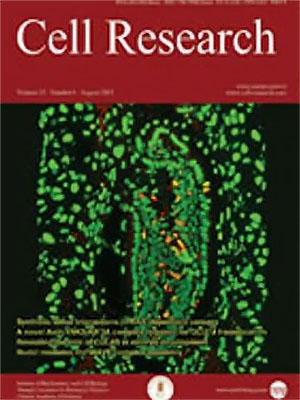
Volume 15, No 3, Mar 2005
ISSN: 1001-0602
EISSN: 1748-7838 2018
impact factor 17.848*
(Clarivate Analytics, 2019)
Volume 15 Issue 3, March 2005: 193-200
ORIGINAL ARTICLES
Inhibition of genes expression of SARS coronavirus by synthetic small interfering RNAs
Yi SHI, De Hua YANG, Jie XIONG, Jie JIA, Bing HUANG, You Xin JIN*
State Key Laboratory of Molecular Biology, Institute of Biochemistry and Cell Biology, Shanghai Institutes for Biological Sciences, Chinese Academy of Sciences, Shanghai 200031, China
Correspondence: You Xin JIN(yxjin@sibs.ac.cn)
RNA interference (RNAi) is triggered by the presence of a double-stranded RNA (dsRNA), and results in the silencing of homologous gene expression through the specific degradation of an mRNA containing the same sequence. dsRNA-mediated RNAi can be used in a wide variety of eucaryotes to induce the sequence-specific inhibition of gene expression. Synthetic 21-23 nucleotide (nt) small interfering RNA (siRNA) with 2 nt 3' overhangs was recently found to mediate efficient sequence-specific mRNA degradation in mammalian cells. Here, we studied the effects of synthetic siRNA duplexes targeted to SARS coronavirus structural proteins E, M, and N in a cell culture system. Among total 26 siRNA duplexes, we obtained 3 siRNA duplexes which could sequence-specifically reduce target genes expression over 80% at the concentration of 60 nM in Vero E6 cells. The downregulation effect was in correlation with the concentrations of the siRNA duplexes in a range of 0~60 nM. Our results also showed that many inactive siRNA duplexes may be brought to life simply by unpairing the 5' end of the antisense strands. Results suggest that siRNA is capable of inhibiting SARS coronavirus genes expression and thus may be a new therapeutic strategy for treatment of SARS.
FULL TEXT | PDF
Browse 2045


